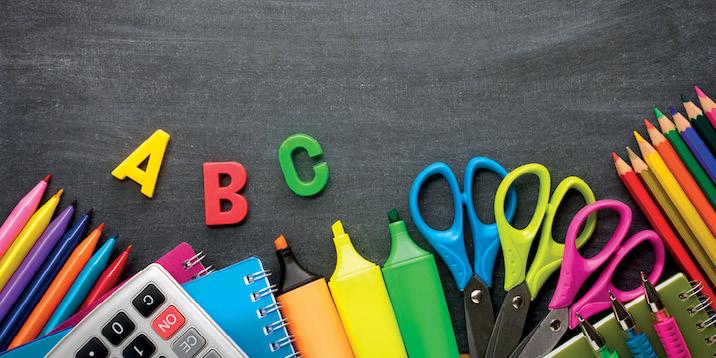
I don’t think I’m alone when I say that lately, I’ve felt more afraid than I ever have — afraid for people who are less privileged than I am, afraid for my family, afraid for what the future will bring. I feel this uncertainty most acutely when I look at my children — their faces so open, innocent and caring.
I started the year determined to do something positive in the world. But I didn’t want to go it alone. I wanted to involve my kids (Edie, 4, and Maxine, 2) — partly to show them that they have the power to recognize injustice, stand up for what’s right and do good. Yet the opportunities for volunteering with toddlers and preschoolers can be hard to come by, and children best wrestle with unfamiliar concepts through hands-on experience.
So I set out to tap into community resources and create ways for my family to give back (and talk about tough topics like racism, homelessness and hunger). I’ll be writing about our journey in Baby Steps, and I decided to start with education — partly because I love September’s giddy sense of possibility that practically wafts off freshly sharpened pencils and brand-new Crayolas. For many families, the back-to-school season can be expensive and stressful.
Test out one (or all!) of these actions that support families in overcoming barriers between the realities they face and the promise of education.
• Give the right stuff. This year, as you shop for glue and index dividers, buy double and pack the extras in a backpack for a child in need; your kids can pick them out. (Many families can’t afford the $200 the average family spent on school supplies last year.) Then ask your kids to craft a “Have a good first day of school!” card to include in the set-up, which you can bring to a neighborhood school or drop off at Friends of the Children Portland (friendspdx.org). I don’t know about your kids, but mine want to open those markers and colored pencils for themselves, so you’ll want talk about why you’re donating all that cool stuff. Try, “Could you learn if you didn’t have erasers or a notebook? Some kids can’t afford to buy these things, so I’m excited we can share school supplies to help them learn.”
• Feed their curiosity. Start, or stock, a grab-and-go snack shelf at a local school, because trying to learn on an empty stomach is no joke. Any child with an appetite can pick up a healthy snack like fruit, granola bars or trail mix, which reduces the stigma of accepting free food. Each time you go to the grocery store, task your kids with picking out a healthy snack for the shelf.
• Open your closet. Before you hit the back-to-school clothing sales, ask your kids to go through their drawers and pull out anything that doesn’t fit. You can donate gently used clothes, shoes and outerwear to closets run by school districts in the area, which allow low-income kids to shop for free.
• Help them show up. Nearly 1 in 4 students in Multnomah County misses 10 percent of class days or more, according to Portland’s education and racial equity nonprofit All Hands Raised — often because of barriers such as homelessness, trauma or lack of transportation. If you see kids out of school during school hours, say hello. A nonjudgmental check-in (“Hi! Is school out today? Do you need anything to help you get to school?”) can change the trajectory of a young person’s day. CEO Dan Ryan explains, “All it takes is one caring adult on any given day to notice a teenager, youth or child. It lets them know they’ve been seen and cared for.”
- Family-Friendly Winter Travel Around Oregon - November 30, 2023
- Catch Fall Colors at Hoyt Arboretum - November 1, 2023
- Family-Friendly Travel for Your Best Oregon Summer Yet - May 23, 2023






